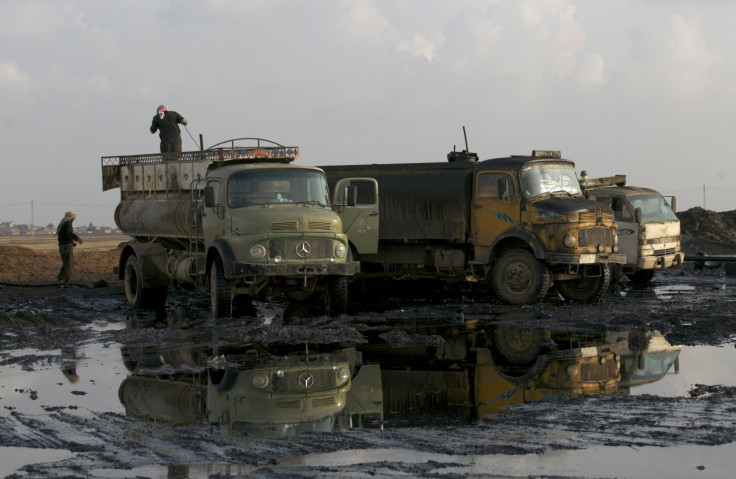Islamic State Attacks Damascus: ISIS Militants Blow Up Gas Pipeline To Syrian Capital

Islamic State group jihadists blew up a natural gas pipeline that runs from eastern Syria to the suburbs of Damascus late Wednesday night, according to Agence France-Presse. The pipeline, used for electricity and heating in Syrian homes, was destroyed in the east-central Homs province near the T-4 military airport, in the latest attack by the Islamic State, also known as ISIS, on the country's resources.
ISIS has made an effort to control resources in the oil-rich state of Syria and recently seized a number of oil and gas fields in the Homs province during its offensive on the city of Palmyra, reports AFP. The Assad regime, which has been engaged in a civil war for the past four years with ISIS and other rebel militia groups, has relied heavily on the oil fields and natural gas pipeline in Homs province to generate power for the regions under its control.
"This pipeline was used to carry gas into the suburbs of Damascus and Homs to generate electricity and provide heating in individual homes," Rami Abdulrahman, the head of the Syrian Observatory for Human Rights based in the U.K., which first reported the explosion, told AFP. "Any hit to the regime's gas supply is important, because its resources are very low."
International Business Times reported in April that ISIS has been trading oil from land it has captured in Syria back to the government of embattled President Bashar Assad in exchange for cash.
Danny Glazer, assistant secretary for terrorist financing at the U.S. Treasury Department, describes the transaction between ISIS rebels and Assad's government as a "business opportunity" in the BBC2 documentary “World’s Richest Terror Army, according to an article in the Guardian. "The Assad regime needs the oil, ISIS needs the cash, and they're willing to do business even as they're fighting each other."
But unlike oil, natural gas has proved a more difficult captured resource for ISIS to monopolize and sell, according to Yezid Sayigh, an analyst at the Carnegie Middle East Centre in Beirut, who spoke to AFP.
Blowing up gas pipelines demonstrates that "the name of its game for now is denial of key resources to the regime," Sayigh wrote in a June 8 post with the Carnegie Endowment for International Peace.
© Copyright IBTimes 2025. All rights reserved.






















